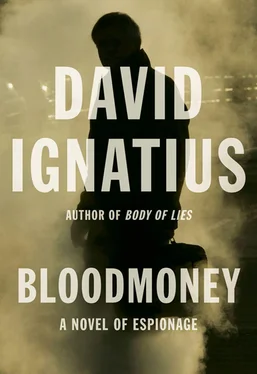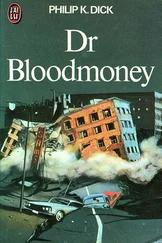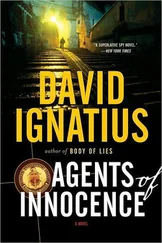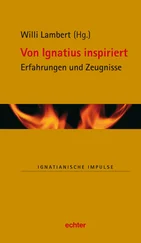David Ignatius - Bloodmoney
Здесь есть возможность читать онлайн «David Ignatius - Bloodmoney» весь текст электронной книги совершенно бесплатно (целиком полную версию без сокращений). В некоторых случаях можно слушать аудио, скачать через торрент в формате fb2 и присутствует краткое содержание. Жанр: Шпионский детектив, на английском языке. Описание произведения, (предисловие) а так же отзывы посетителей доступны на портале библиотеки ЛибКат.
- Название:Bloodmoney
- Автор:
- Жанр:
- Год:неизвестен
- ISBN:нет данных
- Рейтинг книги:4 / 5. Голосов: 1
-
Избранное:Добавить в избранное
- Отзывы:
-
Ваша оценка:
- 80
- 1
- 2
- 3
- 4
- 5
Bloodmoney: краткое содержание, описание и аннотация
Предлагаем к чтению аннотацию, описание, краткое содержание или предисловие (зависит от того, что написал сам автор книги «Bloodmoney»). Если вы не нашли необходимую информацию о книге — напишите в комментариях, мы постараемся отыскать её.
Bloodmoney — читать онлайн бесплатно полную книгу (весь текст) целиком
Ниже представлен текст книги, разбитый по страницам. Система сохранения места последней прочитанной страницы, позволяет с удобством читать онлайн бесплатно книгу «Bloodmoney», без необходимости каждый раз заново искать на чём Вы остановились. Поставьте закладку, и сможете в любой момент перейти на страницу, на которой закончили чтение.
Интервал:
Закладка:
The Darwesh Khel clan leader, Azim Khan, rose to greet the visitor. He wore his white beard trimmed, rather than in the woolly bush of his neighbors, because he was partly a city man. They exchanged a kiss of mutual respect and trust, and the host professed that he was honored: One of the most powerful men in Pakistan had come alone and unarmed to see him, bringing a blessing to his home. But the host was nervous, too. He feared that the visitor had come to punish him.
Azim Khan lived most of the time in Karachi, where he had land and villas, and a prosperous nephew who worked at Habib Bank Tower. But for the past week, the old man had gone to ground-returned to his tribal homeland and stayed within the mud walls of his compound. He was frightened and confused, and so he hid.
The khan summoned one of his grandsons to bring tea and a heaping platter of fruits, and then a tray of sweets for his guest. Then, when they had eaten and drunk, he asked the others to leave the room, so that he could talk with the visitor alone.
“Let us not pretend,” began the general. “It is enough for the others to tell lies. But between us, it must be only the truth. One lie and the clear water will become cloudy. Do we agree on that, my friend?”
Azim Khan put his hand on his heart, in a show of sincerity. “Koag bar tar manzela na rasagei,” he said, quoting a proverb in the Pashto language, which means, “A tilted load won’t reach its destination.” He translated it into Urdu for the general.
“I know that you were going to meet with the Americans last week,” said the general. “It was wrong, what you planned to do. But I forgive you.”
“Thank you, General Sahib. I do not deserve your mercy.”
“I want to talk with you about the Americans,” continued the general. “I need to understand what they want. Their actions confuse me. How many times have you talked with them?”
“Only once, sir. The second meeting was to take place a week ago. But that did not happen, as you know.”
“What did you discuss before, at the first meeting?”
“We were in the Emirates, sir. The American man asked me to come there, with my nephew. He said that they wanted peace with the Pashtun people, so that we would be their friends. They wanted to begin with the Darwesh Khel people, so that others would follow. All the wealth of America would assist us in this project, he said. I told him I would consider it.”
“Did he offer money personally to you, Azim Khan? Please be honest, my brother. Let there be no grit of lies in this pure brew we are sharing.”
“Yes, General. He wanted to make a gift. Of course he did. I told him our proverb. Sta da khaira may tobah da, kho das pie de rana kurray ka. ”
“And what does that mean? I am a Kashmir-born man, and I do not speak your Pashto language.”
“Sir, the words of the proverb say, ‘Don’t give me your alms, just save me from your dogs.’ I was trying to tell him that I could not help him with his enemies. But he wanted to give me the money anyway. It was a very large amount.”
“And what did you decide, Azim Khan, when you had thought about it?”
“Well, sir, I thought, if these foolish Americans want to give money to an old man with a white beard, why not? So my nephew told him that. Yes, I would meet him again and accept his gift. And he was coming to see me, this man, on the night he was taken.”
“How much money was he sending you, brother? No harm will come to you if you tell me the truth.”
“Well, General, I am embarrassed. But I will tell you. He was sending me two million dollars. It was wired to my account, from a secret fund. And he promised more money, much more, in the future if we worked together. He said it would be ten million dollars, maybe more. He would put it in an account, where I could go visit all this money. And there would be more money for other Pashtun people. I think they wanted to buy peace, sir.”
General Malik laughed. He did not mean to, but he could not help himself. He made a dismissive gesture with his hand, as if he were brushing something unpleasant away.
“ Dudh vich mingyan, ” he said, a Punjabi expression that means, literally, “rat turds in the milk.” “These Americans are the clowns of the world, are they not, my brother? They drop their bombs from the sky, and then when we get angry, they think of friendship. They think they can make war, and then charm us with money. Really, they bring mirth on a summer day.”
“Yes, General. We smile, but we have a saying for this, too, sir. ‘A stone will not become soft, nor an enemy a friend.’ These Americans think they can change all things with money, even the hardness of the stone. But they cannot.”
“So here is my question, Azim Khan, the thing that still puzzles me. How did they know to come to you, an elder of the Darwesh Khel? Are they this clever, that they understand our tribes and clans? Or has some Pakistani person told them on what doors they should knock? I think it must be the second answer, don’t you?”
“I am sure I do not know, sir. These Americans have advisers for everything, and perhaps for this, too.”
“Now I must ask you another question. It has been troubling me ever since the day this American man disappeared. We know who took him. They are the miscreants, the takfiris who hide in these mountains beyond, who think they are God’s assassins.”
The old man nodded sadly.
“But what I do not know is how these miscreants learned that the American agent was coming. And I am wondering, Azim Khan, I will not play the rabbit with you, I am wondering if it was you who told these miscreants about your meeting. Or your nephew, perhaps it was him.”
“No, sir. We did not say a word. Why would we do that? I am not a greedy man. But now my two million dollars has gone. I do not have it. You can turn over every stone from here to Bannu, but you will not find it because I never got it. And the ten million more that they promised, surely that is gone, too. How will I get that now, General? I cannot.”
General Malik had taken his chin in his hand, which was something that he did when he was pondering a question and did not have the answer.
“So how did the miscreants know of the meeting, Azim Khan, if you did not tell them?”
“Sir, there are secrets and there are mysteries, and this is a mystery. It is a problem for the Americans. They are leaving footprints that cannot be seen. But someone is tracking them, just the same.”
General Malik said his goodbyes. He left presents, as well, gifts that he had brought that, although they were not two million dollars, still brought a deferential nod from the clan leader, and rented his loyalty for a season.
The general got back in his two-seat Mashaq trainer and flew back toward Peshawar through the late afternoon. The summer clouds were forming to the east, hot and sticky, and the plane was buffeted like a shuttlecock, so that the pilot felt that he must apologize to his distinguished guest for the turbulence. But the general barely noticed the rough ride, for he was lost in his puzzle book.
Where did the information come from that drove the American operations? That was what the general wondered, and it had bothered him more each year since September 11, as the Americans squeezed for more from Pakistan. He knew they had their agents, of course they did. The ISI tracked them, and usually it found them out. But this was something more delicate and evanescent. It was as if the Americans had found a window on the culture itself, so that they thought not just about this secret or that, but about the social glue that held the place together.
Who could tell them such things, that was what troubled the general. Who would be smart and subtle enough to see the patterns and describe them to the Amriki? If General Malik encountered a person with such a subtle mind, he would want to hire him for the ISI-unless he was a traitor, in which case he would kill him.
Читать дальшеИнтервал:
Закладка:
Похожие книги на «Bloodmoney»
Представляем Вашему вниманию похожие книги на «Bloodmoney» списком для выбора. Мы отобрали схожую по названию и смыслу литературу в надежде предоставить читателям больше вариантов отыскать новые, интересные, ещё непрочитанные произведения.
Обсуждение, отзывы о книге «Bloodmoney» и просто собственные мнения читателей. Оставьте ваши комментарии, напишите, что Вы думаете о произведении, его смысле или главных героях. Укажите что конкретно понравилось, а что нет, и почему Вы так считаете.












